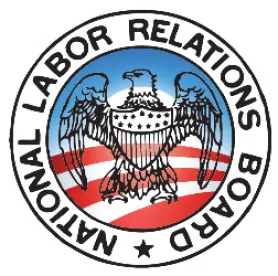On January 14, 2021, the NLRB issued a decision in Asociacion de Empleados del Estado Libre Asociado de Puerto Rico, 370 NLRB No. 71. The decision involved the issue of whether a term of employment contained in a collective bargaining agreement continues after the expiration of the contract. This issue has been vexing for employers and unions for years.
The case centered around a Puerto Rico Law, Law No. 148, that requires certain employers to pay their employees Christmas bonuses of up to $600 annually between November 15 and December 15. The law does not apply, however, “in cases where the … employees receive an annual bonus by collective agreement.”
The employer here was a Puerto Rican corporation subject to Law No. 148. The CBA at issue ran from July 2013 through June 2017. Like all of the parties’ prior CBAs, the CBA provided for a Christmas bonus. The language at issue provided: “[The Respondent] will grant the Christmas Bonus as provided in [Law No. 148] with the following modification”. The CBA then provided for bonus payments according to differing formulas in 2013, 2014, 2015, and 2016. For context, the 2016 modification provided for a bonus of 8.65% of an employee’s salary up to a maximum of $40,000.
The issue arose when, in December 2017, during a period when no agreement was in effect, the union requested the employer pay Christmas bonuses according to the amount most recently provided for by the then-expired CBA. The employer refused, paying only $600, as required by Law No. 148. The next year, an extension agreement was in effect. The union made the same request, and the employer again refused, paying each employee a $600 bonus.
The NLRB considered the employer’s 2017 actions (when the contract was expired) and 2018 actions (which occurred during an extension) separately. It considered whether, in December 2017, the employer’s $600 bonus violated Section 8(a)(5) of the NLRA by unilaterally changing employees’ terms and conditions of employment. The Board also considered whether, in December 2018, the Respondent’s $600 bonus violated Section 8(a)(5) within the meaning of Section 8(d) by modifying the CBA. The Board answered both questions in the negative, finding the Respondent acted lawfully by paying $600 bonuses.
Unilateral Change Allegation
To address the unilateral change allegation, the NLRB relied on the CBA’s plain language. The NLRB found the CBA’s reference to the “Christmas Bonus as provided in [Law No. 148]” meant the statutory bonus amount constituted the baseline contractual bonus amount. The greater bonuses explicitly provided for in each of 2013, 2014, 2015, and 2016 were simply contractually provided-for modifications of the statutory amount. Therefore, when the 2013 – 2017 agreement expired without a successor CBA, the status quo reverted to the baseline contractual $600.
The NLRB found the parties’ intent supported this conclusion: their including language providing for modifications in each of the 4 specified years was “inconsistent with an intention that employees would continue to receive greater-than statutory bonus amounts in years other than those four…” The language evinced an intent that in case of hiatus or extension, the Respondent would provide $600 “but under the contract and not by operation of law.”
The NLRB dismissed the judge’s reasoning, which relied on the parties’ past practice of paying a bonus based on contractually provided for formulas, not the statutorily required amount. The NLRB reasoned instead that the employer’s historical practice of paying more than the statutory amount was always pursuant to the CBA, and the employer’s “history of adhering to successive contracts” did not create a past practice. Even if it did, the NLRB stated, the employer followed that practice by adhering to the post-expiration status quo in 2017.
Contract Modification Allegation
The NLRB then considered whether the employer’s $600 bonus paid in December 2018 was lawful. The Board first noted the standard for finding a violation of 8(a)(5) within the meaning of 8(d): if the employer “has a sound arguable basis for its interpretation of [the] contract…” then they have not violated the Act. This standard is met where the interpretation is at least colorable.
Here, the Board found there was only one reasonable interpretation of the contract: that the contractual baseline amount was $600, and the bonus amount was modified in only the 4 years articulated in the contract. Therefore, in December 2018, the bonus amount required by the contract was the statutorily required $600, and the employer necessarily had a sound arguable basis for interpreting the contract in this way.
Dissent
NLRB Member McFerran dissented from the Board’s decision, finding that the Board’s reliance on the contractual language was misplaced. McFerran noted that, until December 2017, employees had never received only the statutory minimum. Further, while the CBA established a Christmas bonus scale through 2016, “[it] did not address what would happen thereafter.” McFerran stated absent a successor agreement, the status quo was “defined by the 2016 bonus level, the last level specified in the expired contract and reflected in the last Christmas bonus that the Employer actually paid before its federal-law duty to maintain the status quo was triggered.”
McFerran pointed out that providing only the statutory minimum was contrary to the parties’ experience, expectations, and prior CBA’s; surely if the parties had intended to provide only the statutory amount – an “extraordinary result” – then the parties would have clearly so stated. McFerran took issue with the NLRB’s finding that the employer maintained the status quo by providing only the statutory amount, because such payment was never the practice. McFerran criticized the NLRB’s decision as being “completely divorced from the realities of the parties’ experience” which is an important consideration in the unilateral change analysis.
Takeaways
Here, the NLRB credited the CBA’s plain language in finding that bonuses above the statutory minimum were paid pursuant to a CBA which provided for the statutory minimum as the baseline contractual amount and thus, the status quo.
Currently, the starting place for the analysis of what happens post-expiration of a collective bargaining agreement starts and ends with the language of the contract. This narrow interpretation is likely to be changed in the coming years with the change in the make-up of the Board. Out of an abundance of caution, employers should consider how the language of the contract would be interpreted in the event the contract expires and a successor agreement is not immediately put into place.





 />i
/>i

